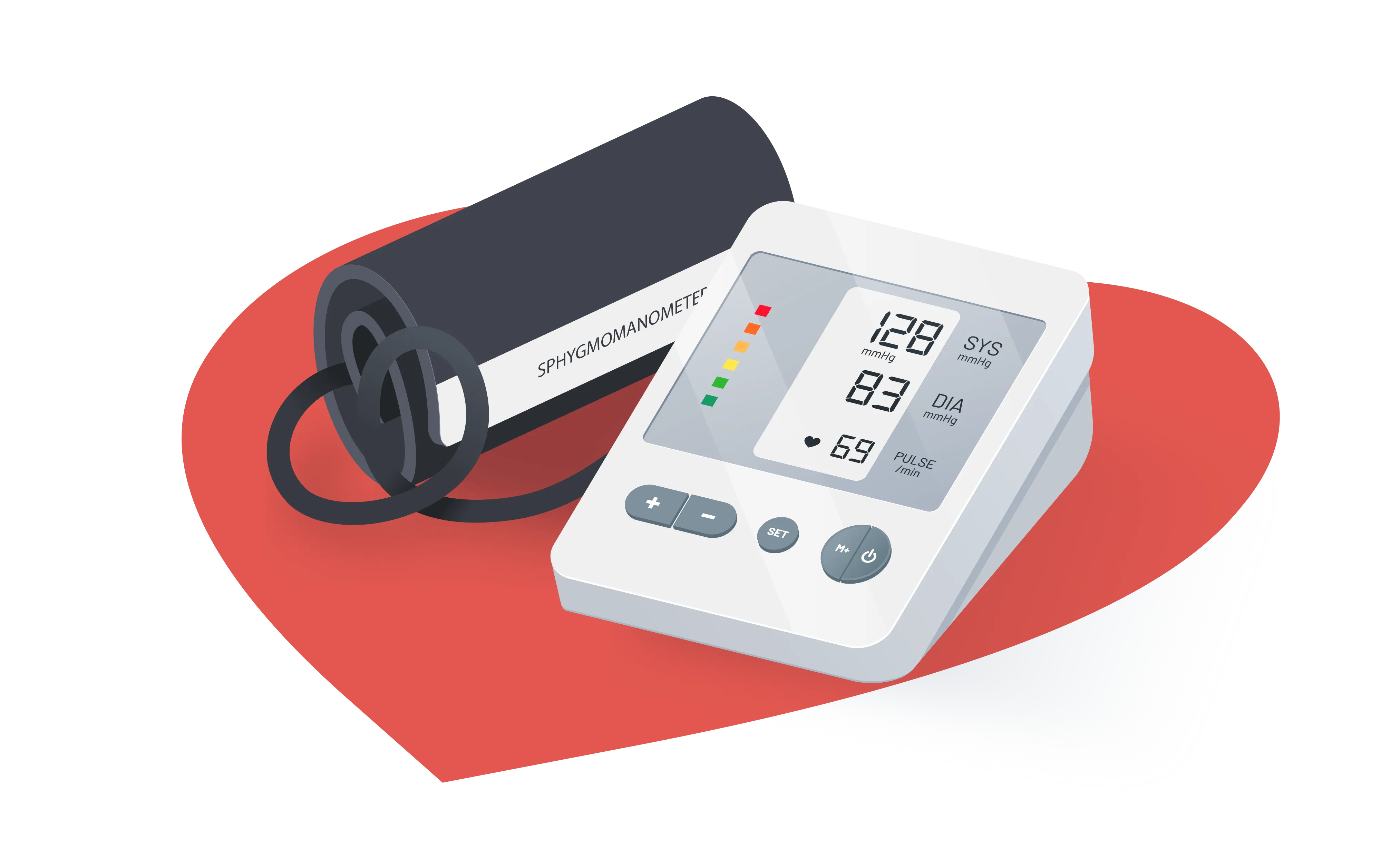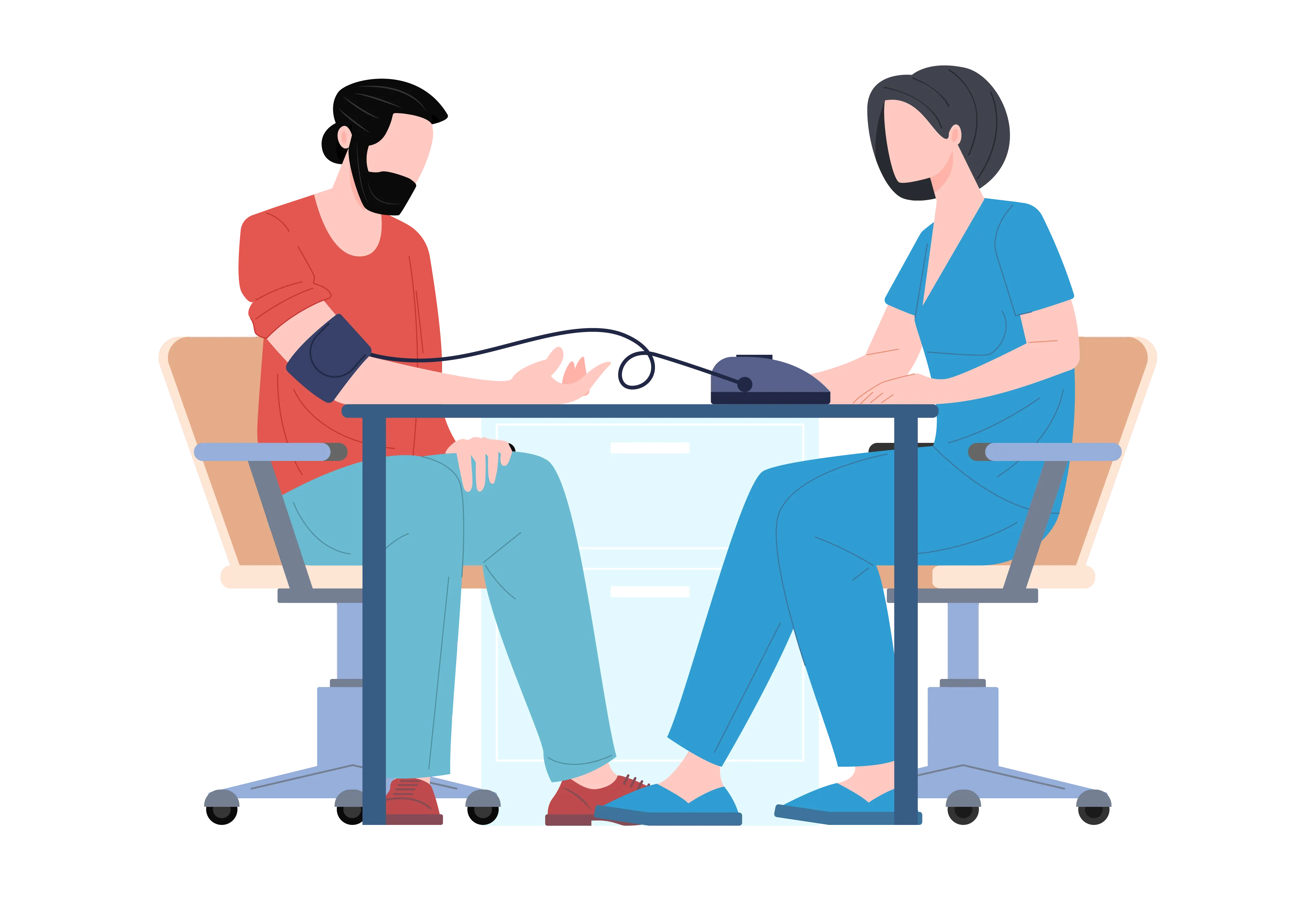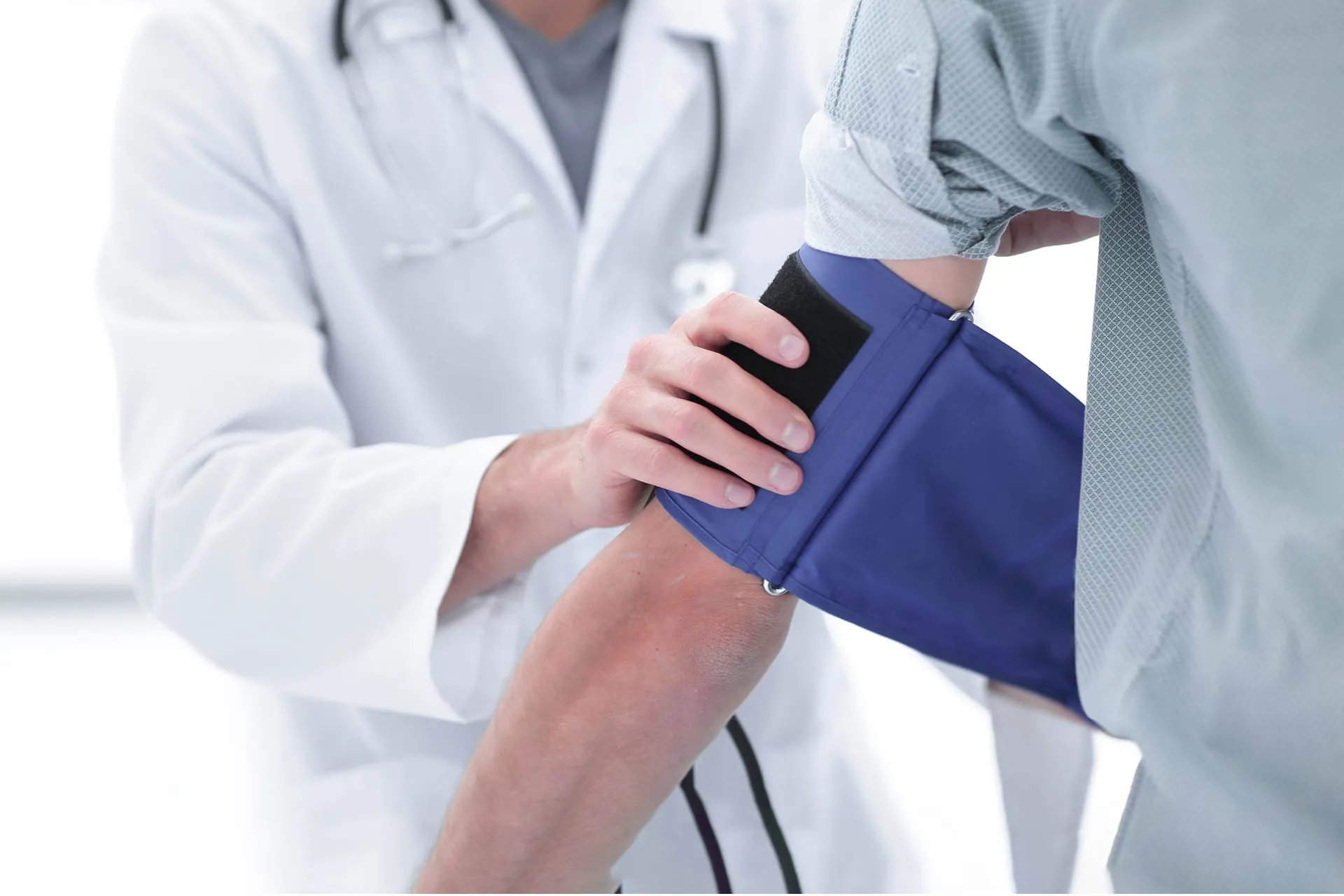Hypertension | 5 min read
5 Different Stages of Hypertension: What are the Symptoms and Risks?
Medically reviewed by
Table of Content
Key Takeaways
- There are 5 different stages of hypertension or high blood pressure
- The normal blood pressure reading of a healthy individual is 120/80 mm Hg
- Prehypertension is an early indicator of increasing blood pressure
Hypertension is defined as high blood pressure. Blood pressure is measured by the amount of blood pumped by your heart to the resistance it flows in the arteries. A normal blood pressure reading is 120/80 mm Hg. It has systolic pressure and diastolic pressure and is measured in ‘mm HG.’ Systolic is the top number which is measured by the pressure created in your arteries during a heartbeat. The bottom number or the diastolic pressure is a pressure created in the arteries between heartbeats. blood pressure is measured using a sphygmomanometer device, and you should check it frequently if you have a history of hypertension. While you can have high pressure and show no symptoms, this condition is linked with several health issues. Read on to know more about the stages of hypertension.
 Additional read: How to Manage Hypertension During Pregnancy: An Important Guide
Additional read: How to Manage Hypertension During Pregnancy: An Important GuideStages of hypertension
According to the revised medical guidelines, blood pressure levels can be categorized into 5 stages. These 5 hypertension stages can be briefly classified as following:
Normal, elevated, hypertension stage 1, hypertension stage 2, and finally, hypertension crisis. If you are blood pressure reading is less than 120/80mm Hg, it is normal.
The systolic value lies between 120- and 129-mm Hg in an elevated stage with a diastolic reading of less than 80 mm Hg. This is prehypertension and needs immediate medical care.
Stage 1 hypertension is when your systolic value is between 130- and 139-mm Hg, and your diastolic value is within 80-89 mm Hg. Elevated pressure needs immediate care to avoid complications. Stage 2 hypertension is when the pressure readings are at 140/90 mm Hg or higher. Follow a combination of healthy lifestyle changes and prescribed medications for better health.
The last and most critical stage is known as a hypertensive crisis. This is when the blood pressure reading is 180/120 mm Hg. At this stage, you absolutely need medical care. You may need to rush to a hospital as there is a high risk of stroke. What’s more, when your pressure is this high for a long period of time, it will cause damage to your blood vessels. Common symptoms of this stage are numbness, chest pain, or shortness of breath.

Symptoms and risk factors of hypertension
In cases of severe hypertension, you may notice symptoms that require immediate attention. Problems occur when the pressure goes unnoticed for a long time. Therefore, regular blood pressure checks are a must.
Some of the symptoms noticed include the following
Chest pain, nose bleed, shortness of breath, visual changes, and blood in the urine.
Your doctor may recommend more frequent monitoring of blood pressure levels considering the risk factors. If you have had cardiovascular problems or high blood pressure in your youth, it is necessary to monitor your blood pressure levels regularly. As your age increases, the risk of hypertension also increases. Other risk factors associated with high blood pressure include your family history, obesity, sedentary lifestyle, stress, and high dependence on tobacco or alcohol. [5]

Effects of hypertension and the applicable treatment
The most notable effect of hypertension is that it causes damage to the heart. High blood pressure results in cardiac problems such as heart failure, coronary heart disease, and enlargement. Apart from the heart, hypertension can cause serious damage to other organs like the brain, kidneys, arteries, and eyes. These can lead to life-threatening complications such as dementia, kidney failure, and retinal damage if not controlled properly. Thankfully, hypertension is manageable, even if you have a history of heart problems.
Consistent monitoring and keeping track of your blood pressure is the first step. Next, you will need to put a few lifestyle-related changes in place. These, paired with proper exercise and stress management, can do wonders for keeping pressure levels under control.
Stress is a major cause of hypertension. Activities like meditation, yoga, massages, and deep breathing techniques can help control hypertension. Reducing unhealthy practices like alcohol consumption and smoking will also help a great deal.
Lastly, you must follow a healthy diet. Limit unnecessary carbohydrate and sugar intakes while maintaining a low sodium diet. Excess salt in food causes an increase in blood pressure. Besides these, medications also help. Common blood pressure medications prescribed by doctors include beta-blockers, ACE inhibitors, and diuretics, to name a few. [5,6]
Additional Read: Yoga for EyesHypertension is a serious but often ignored health condition. Many go undiagnosed and only seek care when it is serious. This is usually the case when preventive care isn’t as much a priority as it should be. To ensure you stay healthy, book an appointment with a specialist on the Bajaj Finserv Health platform. This way, you can schedule routine blood pressure checks and get the care you need without delay or hassles.
References
- https://www.healthline.com/health/types-and-stages-of-hypertension
- https://www.ahajournals.org/doi/pdf/10.1161/HYP.0000000000000065
- https://www.heart.org/en/health-topics/high-blood-pressure/understanding-blood-pressure-readings
- https://www.everydayhealth.com/hypertension/understanding-the-stages-of-hypertension.aspx
- https://www.mayoclinic.org/diseases-conditions/high-blood-pressure/in-depth/high-blood-pressure/art-20045868
- https://www.healthline.com/health/high-blood-pressure-hypertension#diagnosinghypertension
Disclaimer
Please note that this article is solely meant for informational purposes and Bajaj Finserv Health Limited (“BFHL”) does not shoulder any responsibility of the views/advice/information expressed/given by the writer/reviewer/originator. This article should not be considered as a substitute for any medical advice, diagnosis or treatment. Always consult with your trusted physician/qualified healthcare professional to evaluate your medical condition. The above article has been reviewed by a qualified doctor and BFHL is not responsible for any damages for any information or services provided by any third party.





